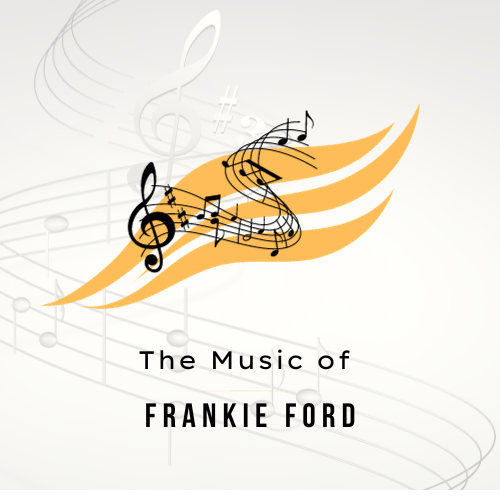Introduction to Frankie Ford
New Orleans rock and roller Frankie Ford rose to distinction during the 50s music scene with his single “Sea Cruise” which reached #14 on the pop chart. He was born in Gretna, Louisiana in 1939, was adopted by a couple who named him Francis Guzzo. Although Ford never returned to the Top 20 chart, he otherwise released many other fine singles on Ace label, including other Hot 100 hits “Alimony,” “You Talk Too Much,” “Time After Time” and “Seventeen.” The white singer who had a teen-idol appearance but sang like a New Orleans black crooner especially during his prime, was dubbed as the “New Orleans Dynamo.” He was inducted into the Louisiana Music Hall of Fame in 2010. “Sea Cruise” remains his most famous song.
Early years
Francis Guzzo, popularly known as Frankie Ford was born on August 4, 1939 in Gretna, New Orleans, Louisiana. He was raised by his adoptive parents Vincent and Anna Guzzo. The American rock & roll and R&B singer is best remembered for his 1959 hit “Sea Cruise.” Ford became a vocalist and piano player in an R&B group The Syncopators when he was in high school.
Music career
In the late 1950’s, Ford was introduced to Ace Records’ distributor and future manager Joe Caronna. Ace Record’s owner Johnny Vincent came up with name Frankie Ford for his new talent. Subsequently, Caronna arranged a recording session for Ford which resulted with the single “Cheatin’ Woman”/ “Last One to Cry.” Ford toured to promote the record but it did not help him to improve its sales.
In December 1958, Vincent considered Huey “Piano” Smith and the Clowns’ (another Ace artist) cut “Sea Cruise,” that it would be a potential hit-maker. The song needed improvement so Vincent asked Ford to overdub Huey Smith’s backing tracks. The song was accentuated with fog horns and boat bells as well. The following year, “Sea Cruise” became Ford’s big hit, reaching #14 on the pop chart and #11 on the R&B chart. It also brought him to embark on a tour across the US. In early 1960, Ace issued the 7-track LP Let’s Take a Sea Cruise with Frankie Ford.
After recording seven albums under Ace, Ford later switched to Imperial in 1961. From there, he released numerous singles but most of them failed to enter the charts except for the Boyd Bennett cover “Seventeen” (#72). Throughout Ford’s music career, he has released more than 30 records:
Frankie Ford’s Discography (may be impartial):
Ace (1958-1960)
- Cheatin’ Woman
- Last One to Cry
- Sea Cruise
- Roberta
- Chinatown My Chinatown
- Time After Time
- Sea Cruise
- Roberta
- Alimony
- Can´t Tell My Heart (What To Do)
- Time After Time
- Want To Be Your Man
- Chinatown
- What’s Going On
Imperial (1960-1962)
- Love Don’t Love Nobody
- Saturday Night Fish Fry
- Let ’em Talk
- What Happened To You
- A Man Only Does (What A Woman Makes Him Do)
- They Said It Couldn’t Be Done
Constellation (1963)
- Ocean Full of Tears
- China Town
White Cliffs (1965)
- Basin Street Blues
- Lonesome Road
Doubloon Records (1967)
- I Can’t Face Tomorrow
- Half a Crown
Paula (1971)
- Peace of Mind
- I’m Proud of What I Am
Cinnamon (1972-1973)
- When I Stop Dreaming
- I’m Proud of What I Am
- Talk To a Carpenter
- When I Stop Dreaming
Goldies (1973)
- Sea Cruise
- Roberta
ABC (1974)
- Blue Monday
- All Alone Am I
Janus Gold (1978)
- Sea Cruise
- Cinnamon Cinder
Goldisc (1978)
- Sea Cruise
- Time After Time
Starfire (1979)
- Cheatin! Woman
- Time After Time
Original Sound Oldies But Goodies (1984)
- Sea Cruise
- Don’t You Just Know It
Ripete (1989)
- Time After Time
- Mashed Potato Time
Good Old Gold
- Sea Cruise
- Down The Aisle Of Love
Era
- Sea Cruise
- Time After Time

